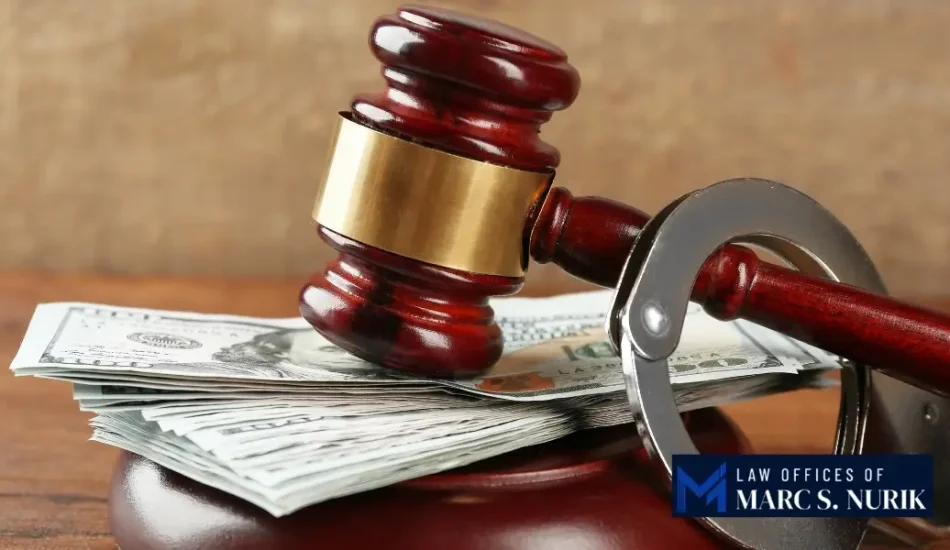Call Us Nationwide310-909-6828

Imagine waking up one day to find your bank accounts frozen, your car towed away, and your home under threat of seizure. This isn’t a dream—it’s the harsh reality of federal criminal forfeiture. In cases of alleged criminal activity, the federal government has the power to seize property they believe is connected to the offense, and these actions aren’t limited to convicted criminals. That’s why it’s important to understand federal criminal forfeiture laws and defenses.
The government can seize assets even before charges are filed, which can leave individuals scrambling to protect their property and financial future.
If you are caught in this web, you need to not only understand your rights, but the scope of federal forfeiture, and the potential defenses available. Federal criminal forfeiture can feel like a David vs. Goliath battle, but with the right approach, you can push back against government overreach.
Federal criminal forfeiture allows the government to seize property, money, and assets that they believe are connected to illegal activity. Unlike civil forfeiture—where property can be taken without criminal charges—criminal forfeiture occurs as part of a criminal case. It targets properties that they believe are:
The government’s goal is to disrupt criminal enterprises and deprive defendants of the “tools” they need in order to commit offenses. In these cases, the stakes are high, as the government can seize cash, vehicles, real estate, jewelry, and even cryptocurrency wallets.
Unlike ordinary criminal proceedings, forfeiture cases follow a unique process. Here’s a breakdown of how it typically unfolds:
Once the forfeiture is finalized, the government can sell, keep, or destroy the property. Proceeds from sales are often funneled into law enforcement budgets or victim restitution funds.
If you are facing asset seizure, you have options. The government may have broad power, but it is not unlimited. Here are the most effective defenses against federal criminal forfeiture:
To mount an effective defense, it is crucial to act quickly, because once your property is seized, the clock starts ticking to file claims and present your evidence.
If you are facing forfeiture, hiring an attorney is not just helpful; it’s essential. Without legal representation, you are at the mercy of federal prosecutors and government agents who have already built a case against you.
When everything you own is on the line, you need an advocate who understands the complexities of federal forfeiture laws.
Yes, cryptocurrencies like Bitcoin and Ethereum are frequently targeted in forfeiture cases. Because digital wallets are considered “property,” they fall under the same rules as physical assets. Federal agencies can track transactions and freeze wallet access during these investigations. It is important to seek legal counsel as soon as possible.
The answer to this depends on the case. If you file a timely claim with the help of an attorney, it will depend on the length of the court process. However, without a legal challenge, your property could be permanently forfeited. It is imperative that you seek legal counsel as soon as possible. The Law Offices of Marc S. Nurik can begin strategizing after a full review of your case.
If a criminal case is dismissed, it does not automatically guarantee the return of seized property. Federal agencies may initiate civil forfeiture proceedings to retain the property, arguing that it is linked to illegal activity. To recover seized property, you must file a claim with the help of a lawyer and prove your right to it in a separate legal process.
Yes, federal agencies can seize business accounts if they believe that the funds are linked to criminal activity, for example, money laundering, wire fraud, or tax evasion. Seizure can happen without prior notice under civil forfeiture laws. Business owners can challenge the seizure by filing a claim, but they must prove that the funds were obtained through lawful means.
Facing federal criminal forfeiture can be one of the most overwhelming experiences of your life. The government has vast resources at its disposal, but that doesn’t mean the fight is over. By understanding the process and mounting a strong legal defense, you have a chance to reclaim what’s rightfully yours.
The Law Offices of Marc S. Nurik offers experienced legal representation for individuals and businesses who are facing federal forfeiture. With deep knowledge of forfeiture laws and a commitment to protecting our clients’ rights, we stand ready to help you push back against government overreach.
Contact us today to schedule a consultation.
4800 N. Federal Highway Suite 205B
Boca Raton, FL 33431
9350 Wilshire Blvd Suite 308
Beverly Hills, CA 90212